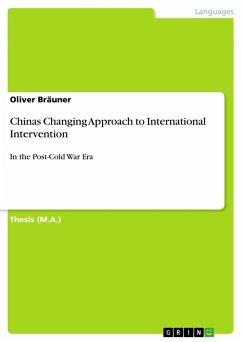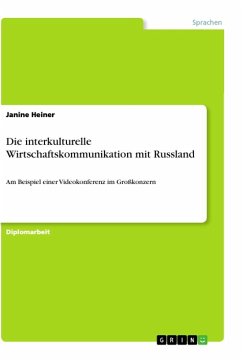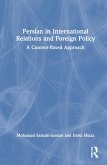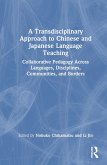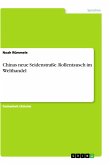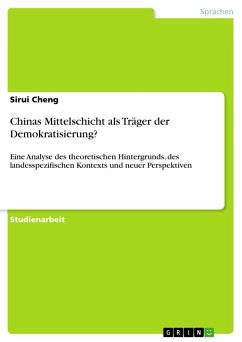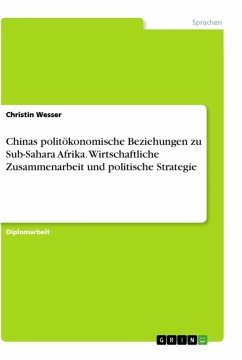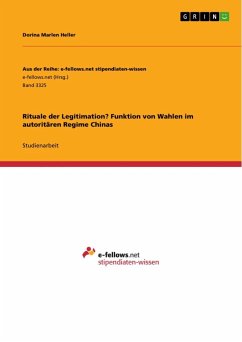Thesis (M.A.) from the year 2009 in the subject Orientalism / Sinology - Chinese / China, grade: 2,0, University of Heidelberg (Institut für Sinologie), language: English, abstract: This work tries to answer these questions by analyzing China's changing policy on the principle of national sovereignty and international military intervention, especially since the end ofthe Cold War era. The result is of course a much more complex picture than the one painted by the Western media: Beijing's interpretation of national sovereignty is by no means static,despite all its conservative rhetoric. In addition, China has increasingly acquiesced to some forms of international military intervention, while continuing to oppose it in certain cases.Although there are some visible red lines, there seems to be no ideologically-driven Chinese strategy on international intervention. Beijing rather seems to follow a pragmatic approach of muddling through (mosuo, ), testing a number of different approaches in order to find the best possible way to promote its interests.This thesis is structured as follows: Chapter 2 provides an analysis of the general development of Chinese foreign policy since the end of the Cold War era. This chapter focuses especially on the issues and motivations that have dominated Chinese foreign policy in the past twenty years. It starts with a brief analysis of the Chinese foreign policy decision-making process and of the Chinese foreign policy think tank landscape. Chapter 3 looks into China's changing position on the principle of national sovereignty. The chapter also discusses the historical development of the principle of national sovereignty, and the factors constraining and conducing change in the Chinese position towards it. Chapter 4 examines Beijing's changing approach to international intervention. To illustrate this approach, two concepts of international military intervention will be examined: UN Peacekeeping Operations and a new concept, the Responsibility to Protect. The analysis of China's position on these concepts will employ a mix of discourse analysis (comprising official statements and unofficial foreign policy elite views) and policy analysis. Thus following a Chinese saying, 'listen to their words, and watch their actions' (ting qi yan, guan qi xing, , ). Finally, a summarization of thefindings and the corresponding conclusions can be found in chapter 5. The chapter ends with some policy recommendations for Western foreign policy decision-makers.

